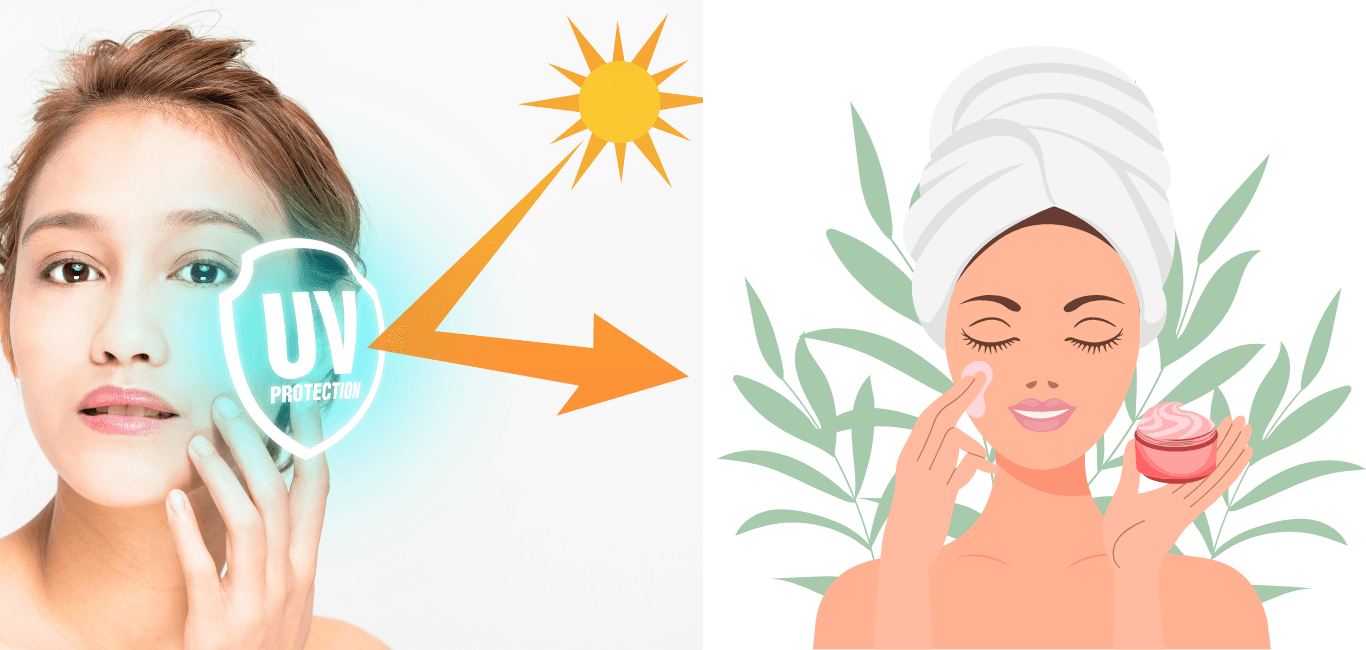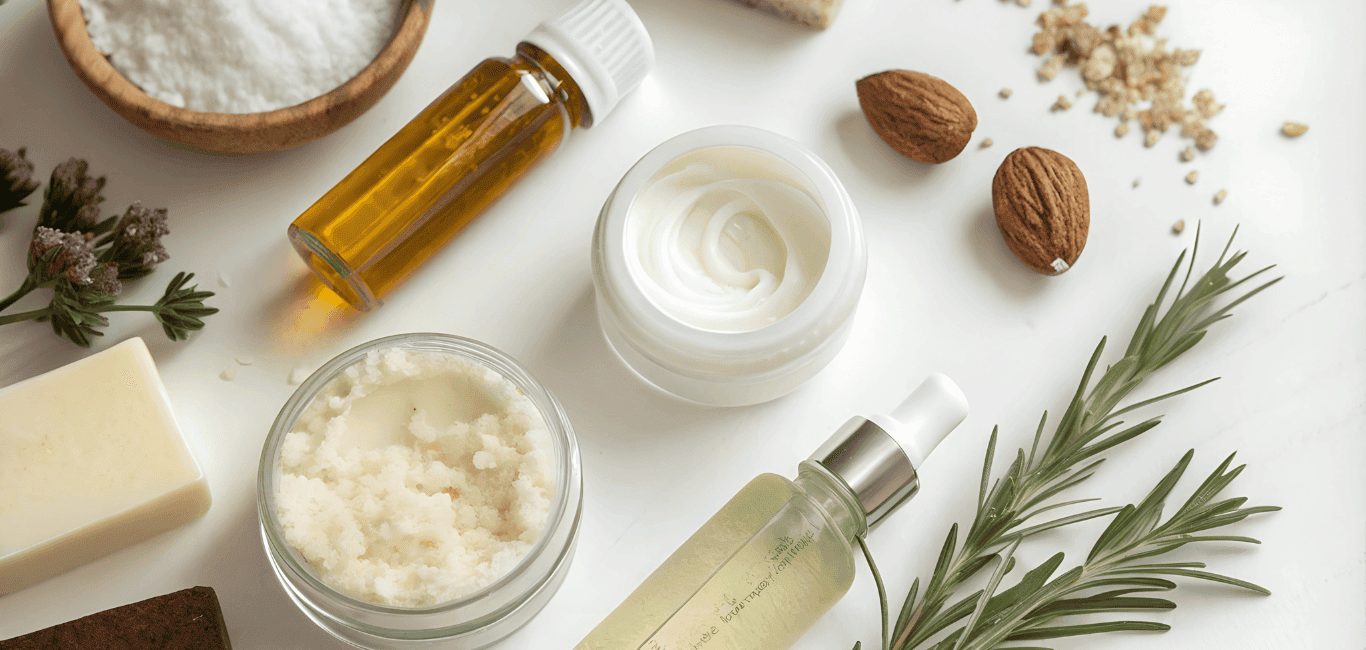Skin Microbiome myths- Debunking the common skincare misconceptions
As our knowledge about gut health and the microbiome expands, we know now more than ever about the consequences of dysbiosis. Advanced genomic sequencing technologies are helping us to study the millions of microbes that live on both the surface as well as inside our body, pushing the frontiers of understanding the human microbiome.
The skin microbiome includes all the microorganisms that reside on different regions of the skin. Not do bacteria grow, but fungi and virus particles also grow on the skin. Though tremendous research is being done in the field of skin microbiome, there are widespread misconceptions about microbiome balances owing to the significant communication gaps between scientists and the public. Most of the skin disorders are said to have a microbial link and dysbiosis is known to affect the severity and pathogenesis of several diseases.
In this article let us expand our knowledge about few common skin care misconceptions.

All our skin bacteria are harmful
Thinking that all our skin bacteria are harmful is one of the most commonly seen myths among individuals. Owing to the frequent use of antimicrobials to address skin infections, it has become a strong belief that any kind of skin disorder is caused due to a bacterial infection. But the research on skin microbiomes disproves this myth. It is identified that skin harbors the growth of different bacterial genera like Staphylococcus and Corynebacterium, some of whose species can ward off pathogenic microbes, regulate inflammation and promote skin’s barrier functioning. Along with minimising excessive use of antimicrobial products, one should opt for gentle and balanced skin care products that promote overall skin health.
Natural and organic products are much better than synthetic ingredients

Another commonly seen myth in skincare routine is the preference for natural or organic products. It is to be remembered that not all synthetic ingredients are bad for our skin. Many times, naturally occurring molecules are produced synthetically to maximize its benefits and make it available to larger populations. One classic example would be salicylic acid used in skin care products. It is present naturally in the willow bark, but produced synthetically on a large scale for various skin care applications. Many products developed in response to research on the skin microbiome are based on naturally occurring bacterial products, and their goal is to design targeted therapies to correct microbiome dysbiosis.
Oily skin means an unhealthy skin
It is most of the times believed that an oily skin is a sign of an unhealthy and damaged skin. However, that is not true. The oil produced by skin’s sebaceous glands often helps to maintain skin health. It acts as a natural moisturizer and protects the skin from external harsh environmental conditions. Over cleansing and excessive scrubbing strip the skin of its natural oils leading to sensitivity and skin irritation. Oily skin could be balanced and well maintained by choosing the right cleanser, skin care products that do not clog the pores and incorporating proper hydration that helps to regulate sebum production.
Disinfection is the best way to prevent skin breakouts
One of the common myths is that acne and other skin breakouts occur due to poor hygiene practices and disinfection can address this condition. While Cutibacterium acnes is found to be associated with acne, most of the time disinfection and killing this bacteria alone doesn’t address the root cause of acne. Instead this process of using excessive antibacterial cleansers, toners and harsh scrubbers damage the skin's membrane integrity making it more dry and itchy. Additionally, excessive cleansing with harsh cleansers can disrupt the skin microbiome making the condition even worse.
The microbiome alone determines the state of our skin health
Though microbiome plays a significant role in maintaining our skin health, there are several other extrinsic and intrinsic factors that play a prominent role in determining our skin condition. Several studies explain the role of genetics in the development of skin disorders like eczema, psoriasis and dermatitis. Apart from our genetic makeup, dietary and lifestyle patterns, environmental exposure, nutritional deficiencies, hydration levels, stress levels, sleep cycle regulations and type of skin care products we use determines our overall skin health.
Fermented skin care products always promote skin health by increasing the growth of beneficial skin bacteria
In recent years the expanding knowledge on alternative sources for harsh synthetic ingredients has more demand for fermented skin care products. It should be remembered that not all fermented skin care products can boost our skin microbiome. It is the type and formulation that decides the efficacy of these fermented skin care products. Also it should be remembered that no one product fits for all. It is always advised to choose only those products that are backed up by scientific research and are approved by regulatory bodies for their safety and efficacy.
Sun exposure is bad for skin
Sun exposure is a major source of vitamin D that helps to maintain healthy bones. Not all sun exposures are harmful to the skin. It is the harmful UV rays that disrupt the skin membranes and alter the skin microbiome.
Probiotics always promote a healthy skin microbiome
Definitely, probiotics are a good source of improving our gut health and addressing gut dysbiosis. However research on probiotic based topical applications is still in its infancy. Additionally, to facilitate their use in topical skin care products, probiotics must also be made in a way that ensures their functionality even after extended storage. Further it is unclear if these probiotic strains present in topical applications become an integral part of the skin microbiome. Compared to probiotics, prebiotics (that feed good bacteria) and postbiotics (microbial metabolites) may be better alternatives to start with for the development of more efficient microbial based skin care products.
Few tips to maintain a balanced skin microbiome
For enhancing your overall skin health with a balanced microbiome, it is essential to opt for gentler skincare products and avoid harsh antibacterial and solid soaps that strip away natural oils present in skin. Further, an overuse of skin care products could disrupt our skin membrane integrity. Try to avoid over cleansing and over exfoliating to prevent loss of natural oils present in the skin. Opting for products containing fermented ingredients might help to maintain the skin microbiome balance. Skin care products containing ingredients like ceramides, fatty acids and niacinamide can help to maintain membrane integrity and barrier functioning of the skin. Numerous studies describe the relationship between the gut and the skin axis and how it contributes to skin health. A balanced diet that includes foods high in probiotics improves the gut-skin-axis communication, which in turn improves skin health.
References
Mahmud, M. R., Akter, S., Tamanna, S. K., Mazumder, L., Esti, I. Z., Banerjee, S., Akter, S., Hasan, M. R., Acharjee, M., Hossain, M. S., & Pirttilä, A. M. (2022). Impact of gut microbiome on skin health: gut-skin axis observed through the lenses of therapeutics and skin diseases. Gut microbes, 14(1), 2096995. https://doi.org/10.1080/19490976.2022.2096995
Walker, A. W., & Hoyles, L. (2023). Human microbiome myths and misconceptions. Nature microbiology, 8(8), 1392–1396. https://doi.org/10.1038/s41564-023-01426-7